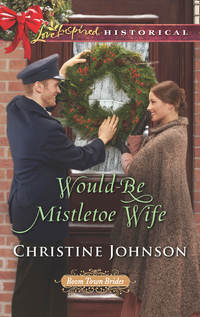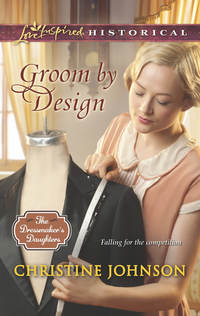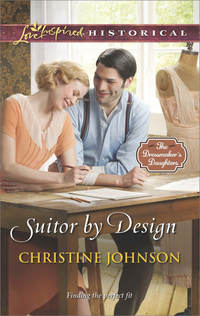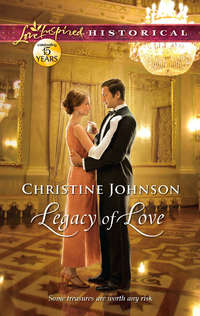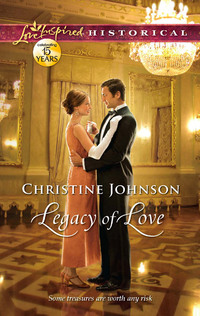
Полная версия
Grim anthology
He always answers, “My friends keep me humble. They remind me that success doesn’t come from my efforts alone. Some of it’s luck, of course, and I feel very lucky right now.”
But each time he says it with less conviction. When they start asking about me, his “good-luck charm,” Eli gets antsy.
These days, we don’t talk much.
One night, after a standing-room-only concert at a local nightclub, a reporter with a different sort of angle wants to talk to Eli.
“Hi.” The lady is about thirty years old and carries a bag that screams organic living. “I’m doing a story about good-luck charms and successful performers—musicians, sports stars, that sort of thing. The article is called ‘Beyond Rabbit’s Feet.’” She sinks into a chair and signals the waitress. “Your little cat is quite the legend.”
“It is?” Eli glances over to the chair next to him, where I’m sitting atop his guitar case.
You just called me “it.” Not cool.
The reporter smiles at me. “So I’ve done some digging...”
“Great,” he mutters, reaching for his Coke.
“It is my job.” She flips a page in her notepad. “Turns out, your father was also known for carrying around a cat-shaped good-luck charm when he was with Boyz on the Korner.” She points her pen at me. “Is this the same one? Did he give it to you?”
Eli just sips his Coke and stares at her impassively, saying nothing.
She reaches into her bag. “I have pictures, if that would help.”
“Don’t bother.” Standing quickly, almost knocking his chair over, he sweeps me up and crams me into his inside jacket pocket. “For the record, yes, the cat was my father’s, but it’s just a gimmick. My girlfriend likes holding it during shows. It gives her something to do with her hands when she gets nervous for me.”
“If it’s just a gimmick, then why is it insured for over a hundred thousand—”
“I have to go. Good night.”
Her protestation fades behind us as Eli stalks out of the club.
Once we’re outside where it’s quiet, I ask him, Am I really a gimmick to you now?
He pulls out his phone to pretend he’s talking to someone else instead of the bulge in his coat. “Fig, I think next time you should stay home.”
* * *
I do stay home for the following gig, perched on his windowsill, angled so that I can also see the aquarium. As frustrated as Eli is with my influence over his life, he still takes the time for small kindnesses.
Just after 2:00 a.m., he pulls into the driveway. I can feel the slam of car doors from up here. Soon the stairs, then the floorboards shake with his footsteps.
The bedroom door jerks open. Eli dumps his guitar case on the bed, then paces, hands on his hips, shoulders lowered in defeat.
How’d it go? I ask, though I can guess.
“It sucked.” He sinks onto the edge of the bed. “I suck.”
You do not suck. That’s one thing I know for sure about you.
“Maybe you know, but I’ll never know. Not as long as...” He raises his head from his hands to stare at me. A look I recognize all too well comes into his eyes.
No...
He gets up and crosses the room toward me, slowly, as if I’ll bite. I wish I could bite.
“I have to do this.” Eli picks me up with the gentlest of touches, but I can feel the fury in his bones.
Don’t put me away. You’ll regret it.
“No, Fig, I won’t. Not in the long run.” He slides me into the envelope his dad sent me in. “I have to make things happen for myself. I don’t even know whether people like me because they want to, or because you’re making them.”
Fine. Let me stay here in your room. Just don’t put me away. Please. Don’t be like your father.
“I’m not like him. You were the one who told me I could succeed on my own. He needed luck, but I don’t.” Eli staples my envelope shut, as if I could escape.
I’ll miss you if you put me away. I’ll be miserable and lonely.
“No,” he whispers, on the verge of tears. “Figments feel nothing, remember?”
I’ve become more than a figment with you. I thought we were friends!
“I’ve given up friends before, when they’ve hurt me.”
But I’m still your Fig. I lower my thought-voice to a whisper. I’ll always be your Fig.
Eli’s hands begin to shake, but I still hear him clearly. “No matter what?”
The toes of my boots bend against the interior of the envelope, and my paws reach out, forever. No matter what.
* * *
In a box in the attic, I lie upon something soft—clothes, I imagine—and wait for Eli to return. Because he still believes in me, I can still feel him. Sometimes I hear him downstairs in his room, playing the song I woke him to write, the song that could make him huge.
It’s cold up here. My cat ears pick up the scrabble of insects and mice, creeping about in what must be an ideal home. My plush body conforms to the shape of whatever I lie upon, the way my soul (if I have one) conforms to the shape of whomever I—well, serve is the wrong word, but it’s better than love.
When Eli moves away—to college or stardom—I begin to fade. It takes months, maybe years. Time loses meaning. My senses dull. I forget who I am.
It ends, as always, in darkness.
Epilogue
A veiled light meets my eyes.
“There you are,” a woman whispers. “Just where he said you’d be.”
A slight rip of paper, then I’m tugged out to see her. Familiar, I think, but...was her hair always that gray?
She stands, crosses the attic, then carries me down creaky stairs, clutching me to her side.
We enter a living room, where the television is on, playing the Grammy Awards. “My friends were going to come over to celebrate,” the woman says, “but I told them I was sick. Eli wanted to make sure you saw, so I figured it should just be you and me.”
Eli...I know the name. Was I once his? Were we each other’s?
I don’t think she can hear me. She sets me on a coffee table, propped against a stack of magazines.
Wait! Was that his face on the cover?
She definitely can’t hear me, and I can’t turn to face the magazines. I strain to see out of the corner of my eye, but these eyes don’t seem to have corners.
“Coming up next,” says the voice on TV, “Grammy nominee for Best New Artist—Eli Wylde!”
Eli...
When they return from commercial break, he’s there onstage, just him and his guitar. His age shocks me—I expected to see a twenty-year-old Best New Artist, but this man’s closer to thirty. It took him thirteen years to reach this height without me, but he reached it, with the song I made him write.
When he wins, his acceptance speech is full of names I don’t recognize. The only name I know is Lyra, whom he refers to as his “oldest friend.” I feel so displaced by this; at our last time together, she was his newest friend.
Finally Eli looks straight at the camera. “Last of all, I’d like to thank my father, Gordon Wylde. We never met in person, but he gave me the most important, most real gift I’ve ever received.” He leans in close to the mic and speaks in a near whisper, holding up his award. “Fig, I’m bringing home a new pair of boots.”
* * * * *
THE TWELFTH GIRL
by Malinda Lo

Harley was the kind of girl who could get away with anything. That was the first thing Liv learned when she arrived at the Virginia Sloane School for Girls in mid-October. It wasn’t only that Harley flouted the dress code and skipped class and ignored the curfew without ever being reprimanded. There was something disquieting yet seductive about her, like walking on the edge of a cliff while gazing down at the violent beauty of the ocean breaking below. Somehow it seemed as if Harley could jump—would jump—but instead of falling, she’d spread her arms and fly like a blackbird.
Liv had known girls who acted like Harley before, but never someone quite so successful at pulling it off. Harley was definitely the most interesting thing about the Sloane School, and from the first time Liv saw her—walking into class twenty minutes late, dressed in tight jeans and boots instead of the uniform, her black hair wind-tossed and wild—Liv didn’t know if she wanted to be Harley or if she wanted to kiss her.
Harley’s friends, too, seemed to benefit from her apparent invincibility. They lived together in Eleanor Castle Hall, a small, turreted fantasy of a dorm on the edge of campus. Castle had twelve rooms, all singles, each taken by Harley and her group. Everybody knew they went out dancing every night until three in the morning, and they never got caught, even though the campus gates were locked at 10:00 p.m., and every dorm had a resident advisor who knocked on your door if you even played your music too loud. The rumor was that Harley had a rich father who had given so much money to Sloane that Harley—and everybody she liked—was immune from the rules.
Liv wanted to be immune, too. Her parents had transferred her to Sloane after she got in trouble at her old school in New York City for missing curfew too many times. Liv was pretty sure her parents had chosen Sloane because there was nothing to miss curfew for in Middlebury, Massachusetts, the quiet town where Sloane was located. If Harley somehow got off campus to party every night, Liv wanted in, but neither Harley nor any of her friends seemed the least bit interested in getting to know the new girl. Their collective cold shoulder annoyed Liv, who was used to being noticed for all the right reasons, and it only made her more determined to figure out how they got away with what they did.
One afternoon about a week after she first arrived at Sloane, Liv walked into Middlebury to buy shampoo at the drugstore. As she approached the shop, she saw a pink neon hand in the window upstairs. The sign next to the hand read Madam Sofia’s Fortunes & Favors. Liv was gazing curiously at the sign—it seemed, almost, to beckon to her—when the door next to the drugstore that led upstairs opened. A girl dressed all in black barreled out onto the sidewalk, nearly smacking into Liv.
“Hey, watch it!” Liv cried.
The girl didn’t stop, tossing her only a brief glare before she continued down the street in the direction Liv had come from. She recognized the girl; it was Paige, one of Harley’s friends. Liv watched Paige disappear around the corner, then glanced at the door she had come out of. There was a small placard in the glass window. Sale: Five Minutes for Ten Dollars. Find Your Future Here. Impulsively, Liv opened the door and went up to the palm reader’s shop.
A gray-haired woman in a green velvet dress turned from the window overlooking the street when Liv entered. The woman’s eyes narrowed on her. “Can I help you?” she said.
“Are you Madam Sofia?” Liv asked, glancing around the shop. It was stuffed with knickknacks and baskets of trinkets.
“Yes.”
“I saw your sign in the window,” Liv said. “‘Five minutes for ten dollars.’”
An odd expression passed over Madam Sofia’s face; it reminded Liv of a key turning in a lock. “Follow me,” the woman said. She led Liv through the cluttered shop to a back room hung with curtains and furnished with a round table and two chairs. Madam Sofia sat down and took out a kitchen timer from beneath her chair. She set it for five minutes and placed it on the table. “Give me your hand,” she said.
Liv sat across from the fortune-teller and placed her hand in the woman’s palm. The instant they touched, Liv felt a strange sensation run through her, as if she were a marionette and the puppeteer had tugged on her strings. She watched as the woman bent over her palm, studying the lines in her skin. The rapid ticking of the timer in the background began to make Liv nervous, as if it were counting down the seconds to—well, Liv didn’t know what, but it was unsettling, and she had the sudden urge to leave.
As if she could sense Liv’s change of heart, Madam Sofia’s hand tightened over hers. “You want to know about the girl who was just here,” she said.
“How—how did you know that?”
“It’s my job to know what brings you into my shop.”
The ticking of the timer seemed to grow louder, and Liv had the disconcerting sensation that she was shrinking while the room around her was expanding.
“You should stay away from those girls,” Madam Sofia said, her voice sounding like liquid smoke.
“What girls?” Liv’s palm was sweating.
“The girls who live in the castle.”
Castle Hall. “Harley and her friends?” Liv asked.
“Yes.”
“Why?”
“They’re dangerous. You should stay away from them.”
Liv hated it when anyone told her what to do. “I’ll hang out with whoever I want,” she said.
Madam Sofia gazed at her with small, dark eyes. Liv twitched under the scrutiny and tried to pull back, but the woman wouldn’t let go of her hand. “They are playing with forces beyond their control,” Madam Sofia said. “If you value your life, you’ll stay away from them.”
The cautionary words only stoked Liv’s curiosity. As that venturesome emotion snaked through her, she said, “I thought you were supposed to tell my fortune, not give me a warning.”
“I’m doing both,” Madam Sofia said, and she dropped Liv’s hand as if it had burned her.
Liv cradled her hand to her chest—it trembled now, free from the woman’s grasp—and stood. “You’re crazy,” she said, and turned to leave.
“Ten dollars,” Madam Sofia said, her voice ringing in the small room. “You don’t want to owe me a debt.”
Liv stopped, feeling as if the woman had grabbed her with an invisible hook. Liv reached into her pocket with her other hand—the one Madam Sofia hadn’t touched—and pulled out her wallet. She fished out a ten-dollar bill and tossed it at the fortune-teller. It caught in the air and fluttered to the floor.
Madam Sofia gave her a shrewd smile and said, “You’re welcome.”
* * *
Everything Liv learned about Harley was like finding another piece to a puzzle. The problem was, she had no idea what the puzzle was supposed to depict.
All the girls at Sloane had definite opinions about Harley and her friends. They were stuck-up; they were slackers; they were daddy’s girls. Beneath the criticism, though, was a palpable yearning to be one of them. To be part of that tight-knit pack of girls who prowled the campus like panthers, beautiful and cunning. To dance every night—no one knew where, but it had to be good—and come to breakfast with last night’s makeup on, leaning on each other and laughing about what they had seen and done until dawn.
Liv soon discovered that the only way to join them was to wait for one of the twelve girls who lived in Castle Hall to leave Sloane, and then hope that Harley chose you to take the vacant room. Two girls had left so far: Melissa Wong, last spring, and Andrea Richmond, at the start of the school year in September. It didn’t look like there would be any vacancies in the near future, which was why the sudden departure of Harley’s younger sister, Casey, was such big news.
Harley didn’t come to breakfast the morning that Casey left. She didn’t show up in public at all until late afternoon, and then her eyes had the unmistakable red rims of someone who had been crying.
Liv saw it up close and personal, because Harley was waiting for her after biology class. “You want to be the twelfth girl?” Harley asked, oblivious to the stares of the girls coming out of the classroom behind them.
Liv couldn’t believe this was happening. She didn’t understand why Harley had picked her and not one of the hundreds of other girls at Sloane. Girls who had been there for much longer; who had been campaigning for Harley’s affections for months. Girls who had more-powerful parents; who had private planes to fly Harley and her friends out of the country if they wanted. Liv’s family was well-off—she wouldn’t be at Sloane if they weren’t—but in comparison to the rest of the students, she fell squarely in the middle. Perhaps that was why Harley’s invitation gave Liv a sense of raw satisfaction, as if she had made this come true because of the strength of her desire, as if she had created a physical arrow from her craving and shot it straight at Harley. Now all she had to do was answer in the affirmative, and her every wish would come true.
“Yes,” Liv said, and Harley’s full lips turned up in the tiniest of grins, and she gestured for Liv to follow her outside.
The trees in the quad had shed half their leaves by now, and with the wind picking up, it was likely they’d lose quite a few more before the end of the day. Harley led her to a nearly bare oak tree in the center of the quad, and Liv understood that the first thing she had to do was survive the hungry gazes of all the students streaming out of the academic buildings around them. She tucked a strand of hair behind her ear and looked at Harley, trying to act like she didn’t care, even though her heart was pounding as hard as if she were sprinting toward a prize.
Out of the corner of her eye, Liv thought she saw a man standing nearby. His shadow stretched across the browning grass as though the sun was rising behind him, but the sky was slate-gray, and when she turned her head, there was no one there. Only Harley was watching her, her dark eyes fringed with long lashes as black as her hair. Liv wondered if she dyed it to attain that shade of midnight.
“These are the rules,” Harley began. “First, you will tell no one about anything I’m about to say. Do you agree?”
“I agree,” Liv said.
“Rule number two is that once you’re in, you’re in. There’s no backing out, no matter what happens. Do you agree?”
The curiosity that had lit within her at Madam Sofia’s shop only burned brighter. “Sure.”
“You have to say ‘I agree,’” Harley said, sounding irritated.
“I agree,” Liv said, puzzled.
“Good. Rule number three: You do what I tell you. We are not a democracy. But if you follow the rules, I’ll watch out for you. Agree?”
Now Liv hesitated. She didn’t like being told what to do. She thought she saw the shadow again, but this time she also saw wings unfolding from it. She blinked, and it was gone.
“Liv,” Harley said.
There was a feverish insistence in Harley’s eyes that made Liv’s contrary nature soften. She felt as if the only thing she had ever wanted was to make Harley happy. “I agree,” she said.
Harley’s shoulders slumped uncharacteristically, and for a second Harley didn’t look invincible; she only looked tired. But the moment passed as quickly as it had come. “Good,” Harley said. “Then you go back to your room and pack your things. Bring them over to Castle Hall before lights-out.”
“Tonight? Don’t I have to fill out some paperwork or something?”
“I’ll take care of it. It’ll take a couple of days to process, but you can still move in tonight. You can stay in my sister’s room.”
“Where’d your sister go?” Liv asked, but as soon as the words were out of her mouth she knew she shouldn’t have said them.
Harley’s face closed up and she looked away. “None of your business. Go get ready. We’re going out tonight.” She began to leave, heading toward the administration building.
“Wait,” Liv called after her. “What should I wear?”
Harley glanced over her shoulder but didn’t slow down. “Dress to impress,” she said.
A blackbird fluttered down from the branch of the oak tree above Liv’s head and landed on the ground a few feet away. It turned to look at her, and as it folded its wings along its body, Liv felt a deep, dark cold inside, as if she had made a bargain with someone or something she did not understand.
* * *
Casey’s room was on the third floor of Castle Hall, and she had left her sheets and blankets on the bed. The first thing Liv did was swap out Casey’s flowered sheets for her own yellow ones. As Liv changed out of her school uniform and into black jeans and a glittery black tank top, she had the unsettling feeling that the room wasn’t empty. It still smelled like another girl’s shampoo.
There was a knock on the door, and Harley called out, “Liv, you ready? Party’s starting.”
“Coming,” Liv answered, and she checked her makeup one last time in the mirror. She had always thought of herself as confident; she had never been a wallflower. Tonight, though, she was nervous. The anticipation of what might happen spread over her cheeks in a rosy flush. She didn’t need any blush.
The girls were all waiting in Harley’s room when she arrived. Harley said, “Say hi to Liv,” and they did, each one of them. Paige, Carmody, Ruby, Skyler, Devin, Sarah, Angela, Tara, Brooklyn and Kirsten. Liv was glad she had worn black, because that seemed to be their favorite color. Black jeans, black leggings, black tanks, black lace, black boots, black eyeliner, black nails. The only spots of color were on their lips and eyes—crimson and purple and blue—and in the jewelry each girl wore. Carmody had a shining steel cuff embedded with blue stones on her right wrist. Paige put up her blond hair with garnet pins. Sarah had a gold mesh bracelet studded with what looked like diamonds. Harley wore a gold ring set with a faceted black jewel on her left hand. Every time she raised her hand, it sparkled.
They passed around a bottle of vodka while they waited for midnight. “We don’t go out till then,” Paige informed Liv. Liv’s mouth grew numb from the liquor, and she wondered if she was going to be drunk before the party even started, but then Harley put the bottle away, and it was time.
“These are the rules,” Harley said to Liv as the girls stood up. “We have to return by three in the morning. No exceptions. And nobody brings anything back with them.”
Liv nodded, and then Harley did something very strange: she pushed her bed aside along well-worn grooves on the wooden floor, revealing a trapdoor. Harley lifted the door’s black iron ring and pulled it up, and Liv saw a flight of stairs descending into the dark. Liv wondered if she was seeing things because of the vodka. They were on the third floor of Castle Hall. Did those stairs go to the second floor?
Nobody questioned it, so Liv didn’t, either. As the girls began to troop down the stairs, Harley caught her eye and said, “Don’t forget what you agreed to, Liv.”
Warmth suffused her skin. “I won’t,” Liv said, and she stepped into the hole in the floor beneath Harley’s bed.
The stairs seemed to go on forever—well past the point where they should have struck the first floor. Liv gripped the metal railing as she followed the girls ahead of her, listening to them chatter about where they were going, who would be there, whether the music would be good. “It’s always good,” said one of them, and the others laughed in agreement, their voices throaty in the dim stairway.
Finally the stairs ended in a steel door like an emergency exit, and Paige pushed the bar to open it. They spilled out into a rain-slicked alley that smelled faintly of gasoline. As Liv looked around, the world seemed to spin. She didn’t understand how they could have climbed all the way down those stairs from beneath Harley’s bed to emerge in this alley in a city that was clearly not Middlebury.
“Where are we?” she asked, feeling dizzy.
Harley grabbed her arm, steadying her. “This way,” she said, and led Liv down the alley to another door. There was a flyer taped to it that depicted a stylized girl’s face with spiky hair and a big, full mouth. Across the place where her eyes should be were four letters: AARU. Harley reached for the handle of the door and pulled it open. Music blasted into the alley.
Liv and the other girls followed her inside. In front of a velvet curtain, a bouncer waited with a flashlight. Harley pulled Liv forward and said, “She’s new. The twelfth girl.”
The bouncer swept his flashlight over Harley’s hand, and her ring glowed. Then he turned the light on Liv’s face, and she winced at the brightness.
“All right,” the bouncer said, flicking the light away.
Harley grabbed her arm again. “Come on,” she said, and pulled her through the velvet curtain.


